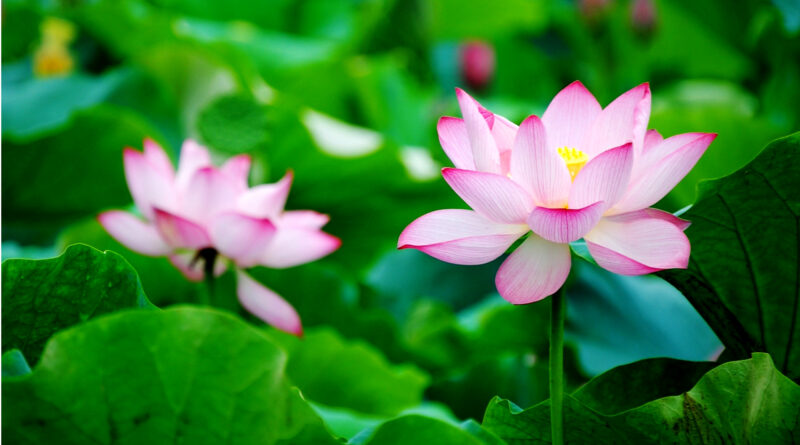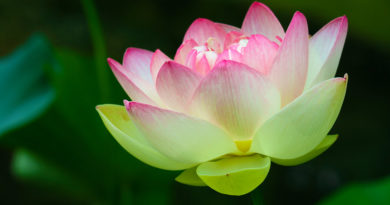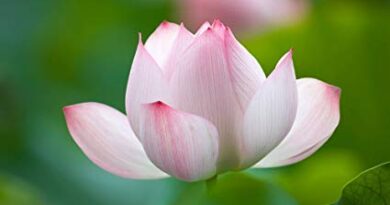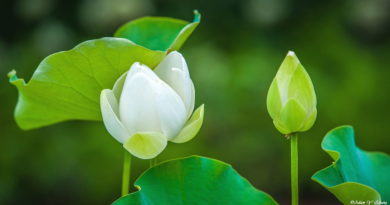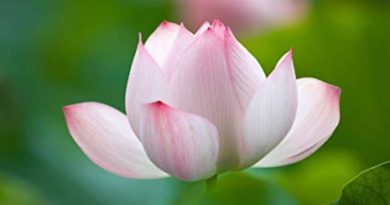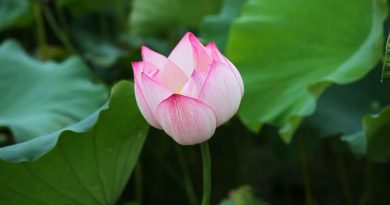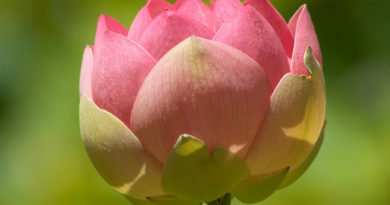Volume Iv –– Saḷāyatanavaggo Book 34 –– Saḷāyatana Saṃyutta Chapter 1 –– Anicca Vaggo
Sutta Pitaka
Samyutta Nikāya
Volume IV –– Saḷāyatanavaggo
Book 34 –– Saḷāyatana Saṃyutta
Chapter 1 –– Anicca Vaggo
34. 1. 1.
(1) Aniccaṃ 1 ajjhattam –– Personal Impermance
1. I heard thus. At one time the Blessed One lived in the monastery offered by Anāthapiṇḍika in Jeta’s grove in Sāvatthi.
2. The Blessed One addressed the monks from there. Those monks responded pleasantly.
3. The Blessed One said: “Monks, the eye is impermanent. That which is impermanent is unpleasant. In unpleasantness there is no self. It is not mine or my self. This should be seen with right wisdom as it really is.
4. “Monks, the ear is impermanent. That which is impermanent is unpleasant. In unpleasantness there is no self. It is not mine or my self. This should be seen, with right wisdom as it really is.
5. “Monks, the nose is impermanent. That which is impermanent is unpleasant. In unpleasantness there is no self. It is not mine or my self. This should be seen, with right wisdom as it really is.
6. “Monks, the tongue is impermanent. That which is impermanent is unpleasant. In unpleasantness there is no self. It is not mine or my self. This should be seen, with right wisdom as it really is.
7. “Monks, the body is impermanent. That which is impermanent is unpleasant. In unpleasantness there is no self. It is not mine or my self. This should be seen with right wisdom as it really is.
8. “Monks, the mind is impermanent. That which is impermanent is unpleasant. In unpleasantness there is no self. It is not mine or my self. This should be seen, with right wisdom as it really is.
9. “Monks, the learned noble disciple who sees it thus, turns from the eye, ear, nose, tongue, body, and the mind. Turning, loses interest and is released. When released knowledge arises, I am released, birth is destroyed, the holy life is lived to the end, duties, are done. I have nothing more to wish.”
34. 1. 2.
(2) Dukkhaṃ 1 ajjhattaṃ –– Personal Unpleasantness
1. I heard thus. At one time the Blessed One lived in the monastery offered by Anāthapiṇḍika in Jeta’s grove in Sāvatthi.
2. The Blessed One addressed the monks from there. Those monks responded pleasantly.
3. The Blessed One said: “Monks, the eye is unpleasant. In unpleasantness there is no self. It is not mine or my self. This should be seen, with right wisdom as it really is.
4-7. “Monks, the ear is unpleasant, the nose, tongue, and body are unpleasant. In unpleasantness there is no self. They are not mine or my self. This should be seen with right wisdom as it really is.
8. “Monks, the mind is unpleasant. In unpleasantness there is no self. It is not mine or my self. This should be seen, with right wisdom as it really is.
9. “Monks, the learned noble disciple who sees it thus turns from the eye, ear, nose, tongue, body and the mind. Turning; loses interest and is released. When released knowledge arises, I am released, birth is destroyed, the holy life is lived to the end, my duties, are done. I have nothing more to wish.”
34. 1. 3.
(3) Anatta 1 ajjhattam. –– The not Seized Internal
1. I heard thus. At one time the Blessed One lived in the monastery offered by Anāthapiṇḍika in Jeta’s grove in Sāvatthi.
2. The Blessed One addressed the monks from there. Those monks responded pleasantly.
3. The Blessed One said: “Monks, the eye is not self, it is not mine or my self. This should be seen with right wisdom as it really is.
4-7. “Monks, the ear, nose, tongue and body are not self. They are not mine or my self. This should be seen with right wisdom as it really is.
8. “Monks, the mind is not self. This should be seen with right wisdom as it really is.
9. “Monks, the learned noble disciple seeing it thus turns from the eye, ear, nose, tongue, body and the mind. Turning; loses interest and is released. When released knowledge arises, I am released, birth is destroyed, the holy life is lived to the end, duties, are done. I have nothing more to wish.”
34. 1. 4.
(5) Dukkhaṃ 1 bāhiraṃ –– External Unpleasantness 1
34. 1. 5.
(5) Dukkhaṃ 2 bāhiraṃ –– External Unpleasantness 2
1. I heard thus. At one time the Blessed One lived in the monastery offered by Anāthapiṇḍika in Jeta’s grove in Sāvatthi.
2. The Blessed One addressed the monks from there. Those monks responded pleasantly.
3. The Blessed One said: “Monks, forms are unpleasant. The unpleasant is not self or mine. This should be seen, with right wisdom as it really is.
4-7. “Monks, sounds are unpleasant. Monks scents, tastes and bodily contacts are unpleasant. The unpleasant are not self or mine. This should be seen, with right wisdom as it really is.
8. “Monks, ideas are unpleasant. The unpleasant is not self or mine. This should be seen with right wisdom as it really is.
9. “Monks, the learned noble disciple seeing it thus turns from forms, sounds, tastes, bodily touches and ideas. Turning; loses interest and is released. When released knowledge arises, I am released, birth is destroyed, the holy life is lived to the end, duties, are done. I have nothing more to wish.”
34. 1. 6.
(6) Anattā bāhiraṃ 2 –– Lack of Self in the External
1. I heard thus. At one time the Blessed One lived in the monastery offered by Anāthapiṇḍika in Jeta’s grove in Sāvatthi.
2. The Blessed One addressed the monks from there. Those monks responded pleasantly.
3. The Blessed One said: “Monks, forms lack self. They are not mine or my self. This should be seen, with right wisdom as it really is.
4-7. “Monks, sounds, scents, tastes and bodily contacts lack self. They are not mine or my self. This should be seen with right wisdom as it really is.
8. “Monks, ideas lack self. They are not mine or my self. This should be seen with right wisdom as it really is.
9. “Monks, the learned noble disciple seeing it thus turns from forms, sounds, tastes, bodily touches and ideas. Turning; loses interest and is released. When released knowledge arises, I am released, birth is destroyed, the holy life is lived to the end, duties, are done. I have nothing more to wish.”
34. 1. 7.
(7) Aniccaṃ 3 ajjhattaṃ –– Personal Impermanence
1. I heard thus. At one time the Blessed One lived in the monastery offered by Anāthapiṇḍika in Jeta’s grove in Sāvatthi.
2. The Blessed One addressed the monks from there. Those monks responded pleasantly.
3. The Blessed One said: “Monks, in the past the eye was impermanent. In the future too it will be impermanent. At present there are no doubts about its impermanence. Seeing this, the learned noble disciple dispels desires for the eye in the past, does not joyfully desire the future eye. At present he falls to the method of turning, losing interest and the cessation of the eye.
4-5. “Monks, the ear re the nose was impermanent in the past re
6. “Monks, in the past the tongue was impermanent. In the future too it will be impermanent. At present there are no doubts about its impermanence. Seeing this, the learned noble disciple dispels desires for the tongue in the past, is not joyful of desires for the future tongue. At present he falls to the method of turning, losing interest and cessation of the tongue.
7. “Monks, the body was impermanent in the past re
8. “Monks, the mind was impermanent in the past. In the future too it will be impermanent. At present there are no doubts about its impermanence. Seeing this, the learned noble disciple dispels desires for the mind in the past, does not joyfully expect the future mind. At present he falls to the method of turning, losing interest and ceasing the mind.”
34. 1. 8.
(8) Dukkhaṃ 3 ajjhattaṃ –– Personal Unpleasantness
1. I heard thus. At one time the Blessed One lived in the monastery offered by Anāthapiṇḍika in Jeta’s grove in Sāvatthi.
2. The Blessed One addressed the monks from there. Those monks responded pleasantly.
3. The Blessed One said: “Monks, in the past the eye was unpleasant. In the future too it will be unpleasant. At present there are no doubts about its unpleasantness. Seeing this, the learned noble disciple dispels desires for the eye in the past, is not joyful of desires of the future eye. At present he falls to the method of turning, losing interest and ceasing desires for the eye.
4-5. “Monks, the ear and nose were unpleasant in the past, re
6. “Monks, the tongue was unpleasant in the past In the future too it will be unpleasant. At present there are no doubts about its unpleasantness. Seeing this, the learned noble disciple dispels desires for the tongue in the past, is not joyful of desires of the future tongue. At present he falls to the method of turning, losing interest and ceasing desires for the tongue.
7. “Monks, the body was unpleasant in the past re
8. “Monks, the mind was unpleasant in the past In the future too it will be unpleasant. At present there are no doubts about its unpleasantness. Seeing this, the learned noble disciple dispels desires for the mind in the past, is not joyful of the future mind. At present he falls to the method of turning, losing interest and ceasing desires for the mind.”
34. 1. 9.
(9) Anatta 3 ajjhattaṃ –– The Not Seized Internal
1. I heard thus. At one time the Blessed One lived in the monastery offered by Anāthapiṇḍika in Jeta’s grove in Sāvatthi.
2. The Blessed One addressed the monks from there. Those monks responded pleasantly.
3. The Blessed One said: “Monks, in the past the eye lacked self. In the future too it will lack self. At present there are no doubts about its lacking a self. Seeing this, the learned noble disciple dispels desires for the eye in the past, is not joyful of desires for the future eye. At present he falls to the method of turning, losing interest and ceasing desires of the eye.
4-5. “Monks, the ear and the nose lacked self in the past re
6. “Monks, the tongue lacked self in the past. In the future too it will lack self. At present there are no doubts about it lacking self. Seeing this, the learned noble disciple dispels desires for the tongue in the past, is not joyful of desires for the future tongue. At present he falls to the method of turning, losing interest and ceasing desires for the tongue.
7. “Monks, the body lacked self in the past re
8. “Monks, in the past the mind lacked self. In the future too it will lack self. At present there are no doubts about it lacking self. Seeing this, the learned noble disciple dispels desires for the mind in the past, is not joyful of desires for the future mind. At present he falls to the method of turning, losing interest and ceasing desires for the mind.”
34. 1. 10.
(10) Aniccaṃ 4 bahiraṃ –– External Impermanence
1. I heard thus. At one time the Blessed One lived in the monastery offered by Anāthapiṇḍika in Jeta’s grove in Sāvatthi.
2. The Blessed One addressed the monks from there. Those monks responded pleasantly.
3. The Blessed One said: “Monks, forms were impermanent in the past. In the future too they will be impermanent. At present there are no doubts about their impermanence. Seeing this, the learned noble disciple dispels desires for forms in the past, is not joyful of future forms. At present he falls to the method of turning, losing interest and ceasing desires for forms.
4-5. “Monks, sounds re scents were impermanent in the past.
6. “Monks, tastes were impermanent in the past. In the future too they will be impermanent. At present there are no doubts about their impermanence. Seeing this, the learned noble disciple dispels desires for tastes in the past, is not joyful of future tastes. At present he falls to the method of turning, losing interest and ceasing desires for tastes.
7. “Monks, bodily touches were impermanent in the past. re
8. “Monks, ideas were impermanent in the past. In the future too they will be impermanent. At present there are no doubts about their impermanence. Seeing this the learned noble disciple dispels desires for ideas in the past, is not joyful of future ideas At present he falls to the method of turning, losing interest and ceasing desires for ideas.”
34. 1. 11.
(11) Dukkhaṃ 4 bahiraṃ –– External Unpleasantness
1. I heard thus. At one time the Blessed One lived in the monastery offered by Anāthapiṇḍika in Jeta’s grove in Sāvatthi.
2. The Blessed One addressed the monks from there. Those monks responded pleasantly.
3. The Blessed One said: “Monks, forms were unpleasant in the past. In the future too they will be unpleasant. At present there are no doubts about their unpleasantness. Seeing this, the learned noble disciple dispels desires for forms in the past, is not joyful of desires for future forms. At present he falls to the method of turning, losing interest and ceasing desires for forms.
4-5. “Monks, sounds and scents were unpleasant in the past re
6. “Monks, tastes were unpleasant in the past in the future too they will be unpleasant. There are no doubts about their unpleasantness at present. Seeing this, the learned noble disciple dispels desires for tastes in the past, is not joyful of future tastes. At present he falls to the method of turning, losing interest and ceasing desires for tastes.
7. “Monks, bodily touches were unpleasant in the past. re
8. “Monks, ideas were unpleasant in the past. In the future too they will be unpleasant. There are no doubts about their unpleasantness at present seeing this, the learned noble disciple dispels desires for ideas in the past, is not joyful about future ideas. At present he falls to the method of turning, losing interest and ceasing ideas.”
34. 1. 12.
(12) Anatta 4 bahiraṃ –– The not Seized External
1. I heard thus. At one time the Blessed One lived in the monastery offered by Anāthapiṇḍika in Jeta’s grove in Sāvatthi.
2. The Blessed One addressed the monks from there. Those monks responded pleasantly.
3. The Blessed One said: “Monks, in the past forms lacked self. In the future too they will lack self. At present there are no doubts about their lacking self. Seeing this, the learned noble disciple dispels desires for forms in the past, is not joyful about future forms. At present he falls to the method of turning, losing interest and ceasing desires for forms.
4-5. “Monks, sounds re scents lacked self in the past, re
6. “Monks, tastes lacked self in the past. In the future too they will lack self. At present there are no doubts about their lacking self. Seeing this, the learned noble disciple dispels desires for tastes in the past, is not joyful about future tastes. At present he falls to the method of turning, losing interest and ceasing desires for tastes.
7. “Monks, bodily contacts lacked self in the past. re
8. “Monks, ideas lacked self in the past. In the future too they will lack self. At present there are no doubts about their lacking self. Seeing thus, the learned noble disciple dispels desires for past ideas, is not joyful of future ideas. At present he falls to the method of turning, losing interest and ceasing desires for ideas.”

